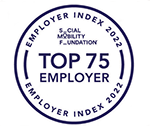Higher Education - a brief guide
- What is a Degree?
- Choosing a Course and University
- UCAS Points
- Applying through UCAS
- Useful Higher Education Websites
What is a Degree?
Unless you are a mature student (age 21 or over), you will need A levels or equivalent qualifications to apply for a place at a university.
Most students study Undergraduate Degrees, eg BA, BSc, BEng, BEd or LLB, dependent on the subject studied. These are full time courses that generally last three years, or four if there is a period of work experience (called a sandwich course). Some courses such as Medicine, Dentistry or Veterinary Science last longer.
Choosing a Course and University
There are lots of different factors to consider when choosing a course or university. It is a good idea to ask for an appointment with a careers adviser if you need help getting started. A search on the UCAS website (external link) is also a good place to start.
Not all universities offer courses in all subjects, so once you have decided on a course you can then start to decide where you want to study. Once you have a short list, research each university in depth, first on the actual university website and then by looking at websites below. Always go and visit them if possible.
UCAS Points
Each A level subject (or equivalent qualification) you take will award you a grade which equates to a number of UCAS points. These points are used by universities to determine what standard of applicant they will accept on to their courses. For example an A* pass at A level will gain 140 points, an E pass will gain 60 points. Other courses such as BTECs also have a points value – see the UCAS website (external link) for a full points table.
It is important that you apply for courses that are asking for a similar points total to your predicted grades - your tutors will have to back this up in their reference. By doing this you stand the best chance of getting offers from your chosen institutions, rather than none at all.
Applying through UCAS
All applications for courses at publicly-funded universities and colleges are handled by UCAS.
Applications can be submitted online from mid-September with the following deadlines:
- 15 October for Oxford, Cambridge, medicine, dentistry and veterinary medicine/science
- 15 January for the majority of other courses
Your application should be done in partnership with your school or college, who will provide a reference and predicted grades. You will also need to complete a personal statement, which gives you the opportunity to sell yourself to prospective institutions by telling them why you want to take their course and why they should choose you. The UCAS website (external link) has a useful tool to help you get started on this.
Useful Higher Education Websites
- UCAS (external link) - applicants can search, apply and track their application through this website
- The Student Room (external link) - student led website where students share academic and social knowledge and experiences. Includes study help, choosing a university, careers and student life
- Open Days (external link) - information and dates on open days for UK universities and colleges
- Push (external link) - independent guide to universities and student life
- Office for Students (external link) - the official site for comparing UK higher education courses
- GOV.UK - student-finance (external link) - information about student finance to support you through your course. Includes application platform
- Not going to uni (external link) - a website that looks at alternatives



